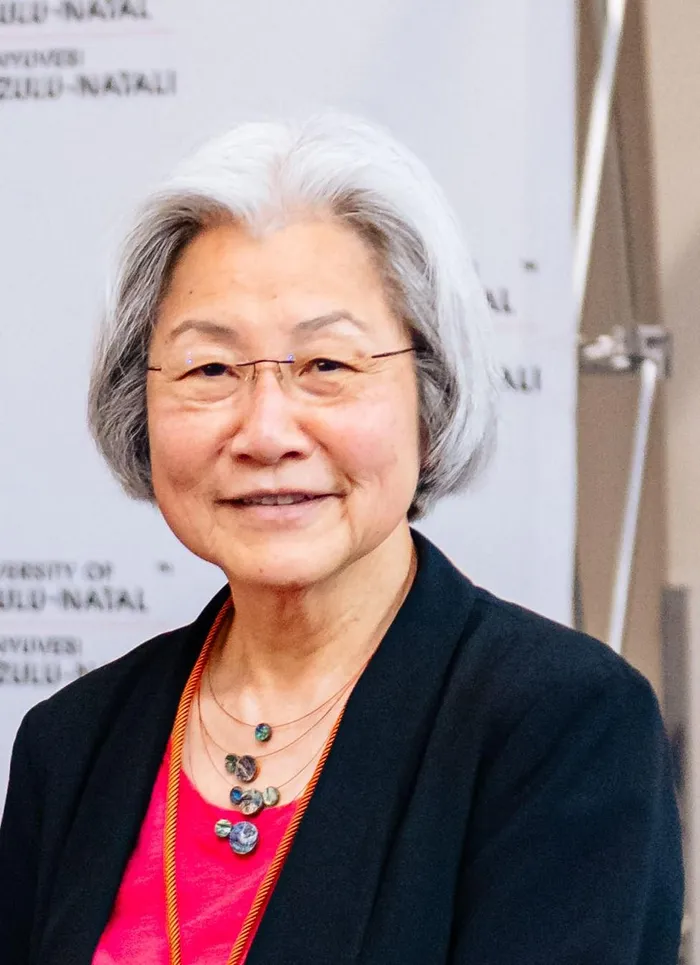Exploring AI in Libraries: Insights from the 5th IFLA Symposium

May Chang is the IT Director at University of Cincinnati Libraries, with over 15 years of work experience in ICT and libraries.
Image: Supplied
I had the good fortune to attend the 5th IFLA Symposium on Artificial Intelligence (AI) hosted by the University of KwaZulu-Natal (UKZN) in Pietermaritzburg, KwaZulu-Natal recently.
This event is part of the International Federation of Library Association (IFLA) IT Section’s ongoing series of regional symposiums and conferences on information and communication technology (ICT) related topics, such as robotics and AI, that impact libraries and information services.
As a former chair and now mentor in the IT Section, I actively collaborate on organising these in-person events to enable closer-to-home access and increasing opportunities for participation, professional development, and networking.
This event was also timely as South Africa assumes the G20 Presidency from December 2024 through to November 2025. The G20's Task Force Three on AI, Data Governance and Innovation for Sustainable Development was established as part of South Africa’s G20 presidency to address AI governance and data management challenges (https://tinyurl.com/3jxxevdv).
The objectives include fostering AI equity and ensuring that the AI equity gap does not become a new digital divide.
It seeks to collaborate with all sectors of society, to shape AI's future in a way that promotes long-term development and sovereignty. The Local Organising Committee led by Dr Nonhlanhla Ngcobo, UKZN Library Director, delivered a successful and memorable event that was supported by the Mayor of Msunduzi Municipality and had generous sponsorship from several library vendors and suppliers as well as the UKZN Press.
The participants were warmly welcomed by UKZN’s Prof. Chuturgoon, DVC Research and Innovation. The Golden Horse Casino and Hotel as the venue also provided the metaphor of the horse and its resilience, as highlighted in the keynote by Mr. Musa Zulu and referenced by several presenters
The horse evolved and adapted to the steam engine and industrial revolution and continues to maintain an important and relevant role in modern society. So too must we adapt to the changes that AI brings to our professional and personal lives or be left behind.
Along with the G20 focus, the symposium had presentations and a panel discussion on AI and sustainable development, and we learned more about the role and activities of libraries and library associations in supporting the SDGs.
The event ended with an interactive drafting of the Commitment to Responsible AI Use which was well received by the attendees. The presentations and case studies also showed the benefits of AI and how libraries are exploring and using generative AI tools to enhance patron services and support more efficient internal operations. These include reference and research assistance using conversational chatbots, collection management and cataloging, and enhancing accessibility with AI-powered tools for automatic transcriptions, text-to-speech, and image description.
Some libraries are using retrieval-augmented generation (RAG) that enables integration of library-curated resources with large language models (LLMs) to improve accuracy, relevance and currency of responses.
As expressed at the symposium, companies and developers must uphold ethical and responsible development of generative AI tools and applications and be held accountable for non-compliance. Policies and governance are still catching up or not conscientiously adopted, and best practices are often put aside or forgotten in the rush to complete assignments.
As well, AI-generated content, particularly citations, references, and statistics, usually sound confident and factual but could fool the unsuspecting user. Useful advice includes to always check for inconsistencies and inaccuracies, use the “zero trust” concept (never trust and always verify), and to be aware of potential bias in the data and output. Tools for creating or detecting AI-generated content are also not fail-proof.
Tools for creating or detecting AI-generated content are also not fail-proof. Public and private institutions, including universities and libraries, have much to do to promote and develop AI literacy and critical thinking skills and analysis of AI-generated content.
Libraries are providing training and tutorials on AI tools and AI-generated content and their ethical and responsible use. We need to actively ensure that people remain in the AI loop for content quality and accuracy and to counter misinformation and hallucinations that AI-generated content can produce. Critical thinking skills and fact-checking are even more important in the AI environment.
Spreading AI literacy to students and communities takes time and resources but this remains key to developing critical thinking skills for evaluating sources and conducting research.
In academia, we hold the torch to academic rigor and integrity, and we need to ensure AI literacy and to support students and researchers in an increasingly AI present world.
There needs to be clear policies and guidelines on AI in curriculum use, awareness of impact on copyright and plagiarism, and AI literacy programs on ethical and responsible use.
Generative AI tools have a place in complementing and supporting human learning but not replacing it. Library associations and librarians in South Africa are also proactively engaging with policy makers on these important AI matters and offering recommendations and actions to support the initiative, including working with the South Africa AI Task Force on capacity-building programs and promoting ethical and responsible applications of AI for innovation and for sustainable development.
This is also indicative of the global reach and impact of libraries in civil society, and it is with pride to see the passion and commitment that South African colleagues and librarians bring to the profession and actively engaging in and using ICT and AI to benefit the community.
I look forward to the next library ICT symposium in South Africa and to seeing and learning more about development and progress in the region.
*The opinions expressed in this article does not necessarily reflect the views of the newspaper.
DAILY NEWS
Related Topics: